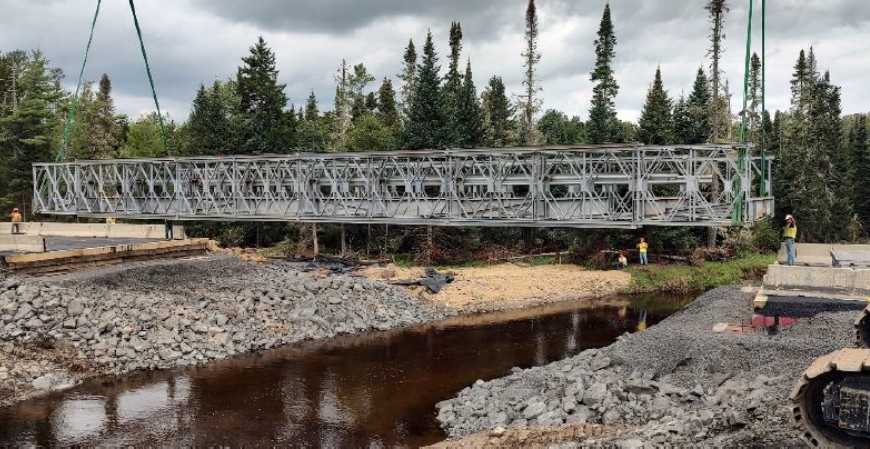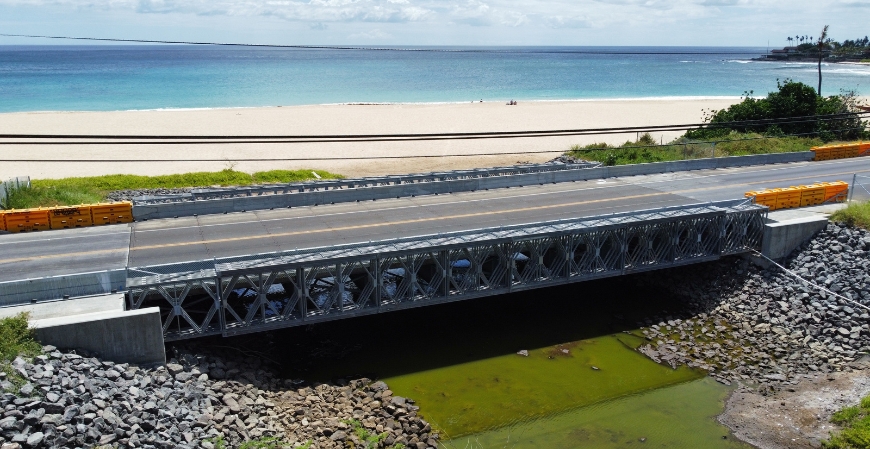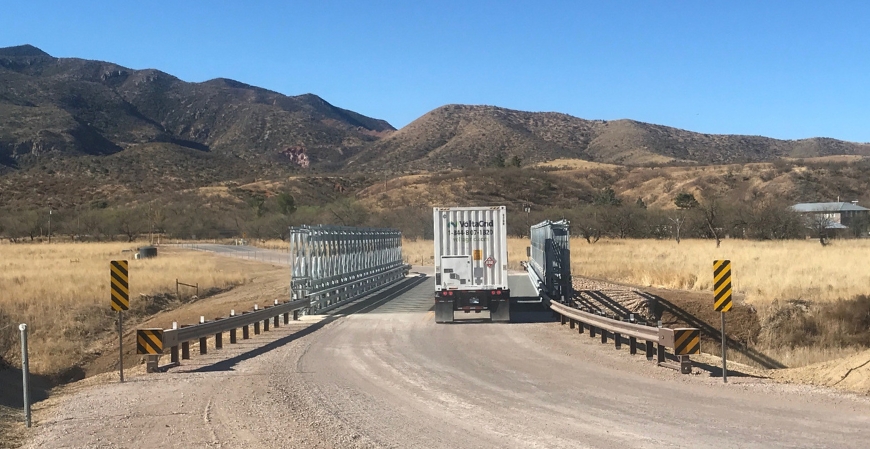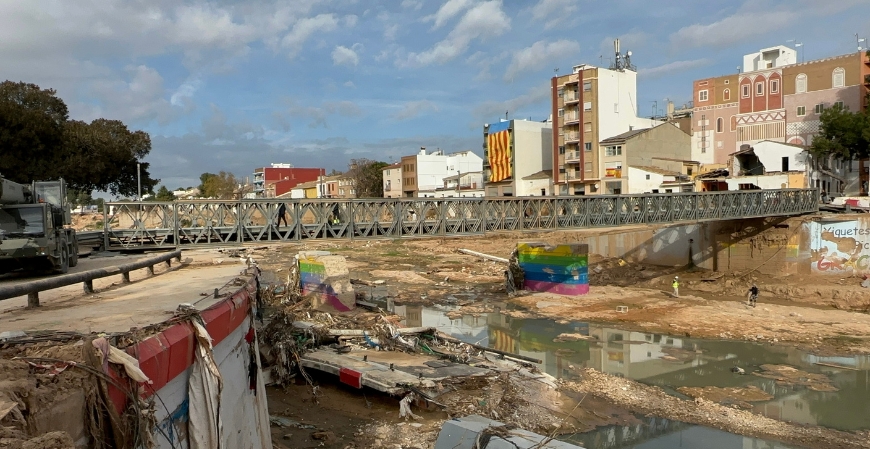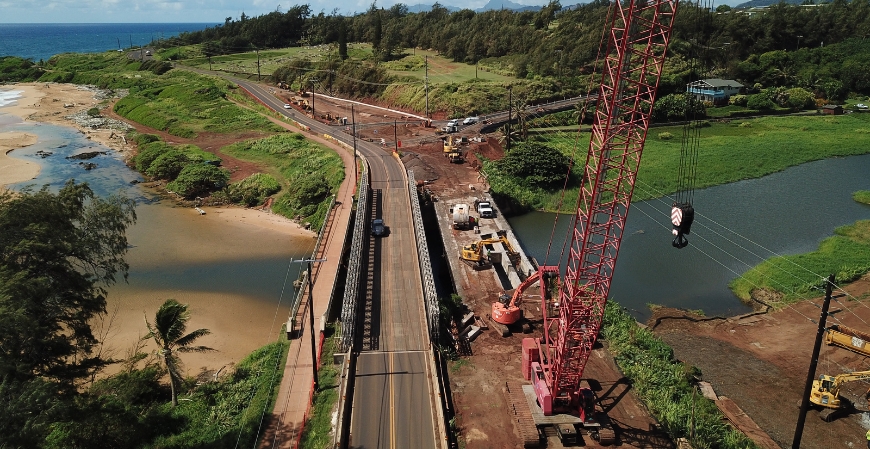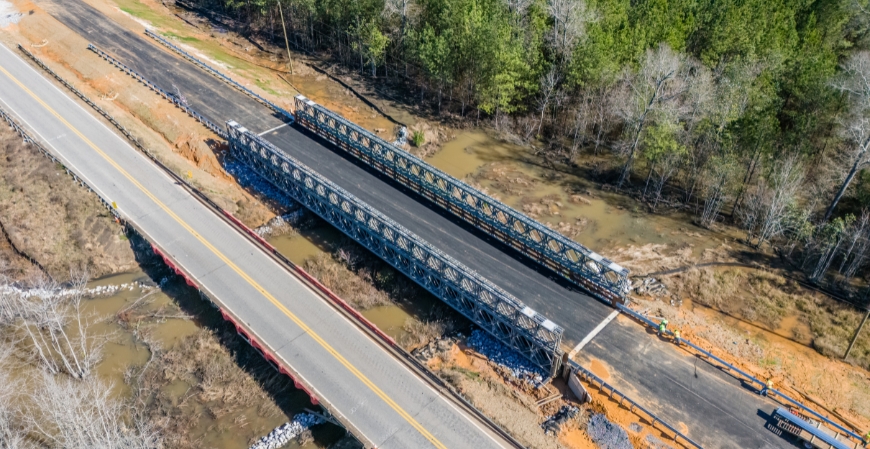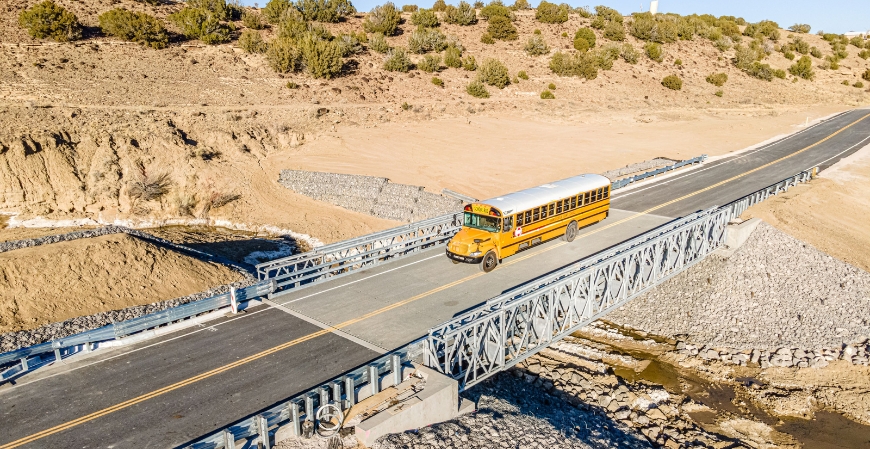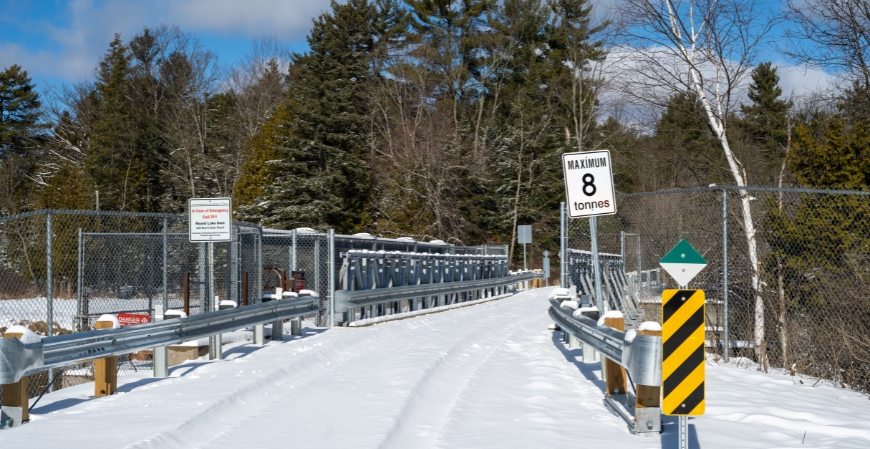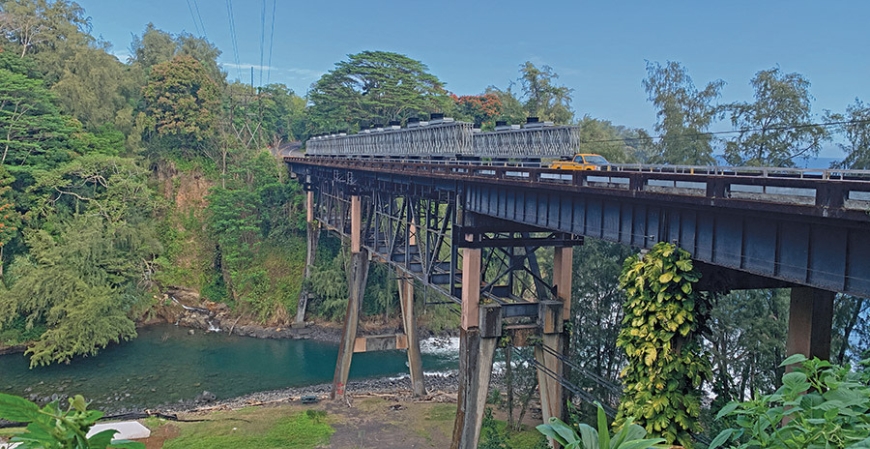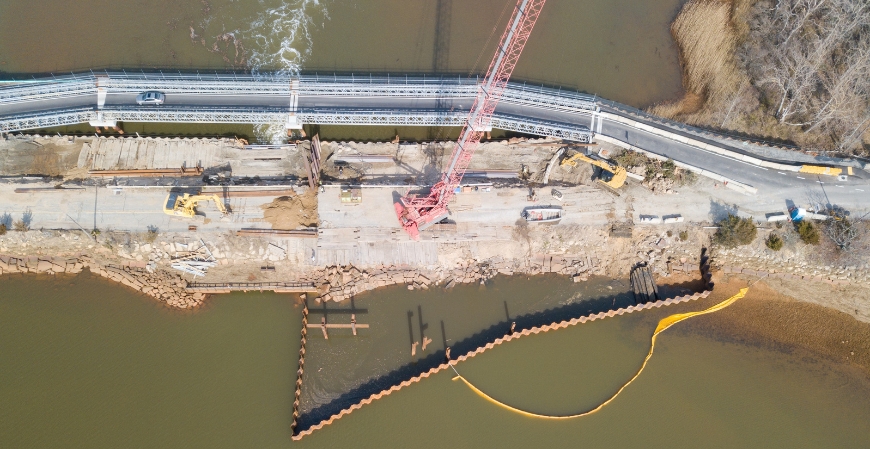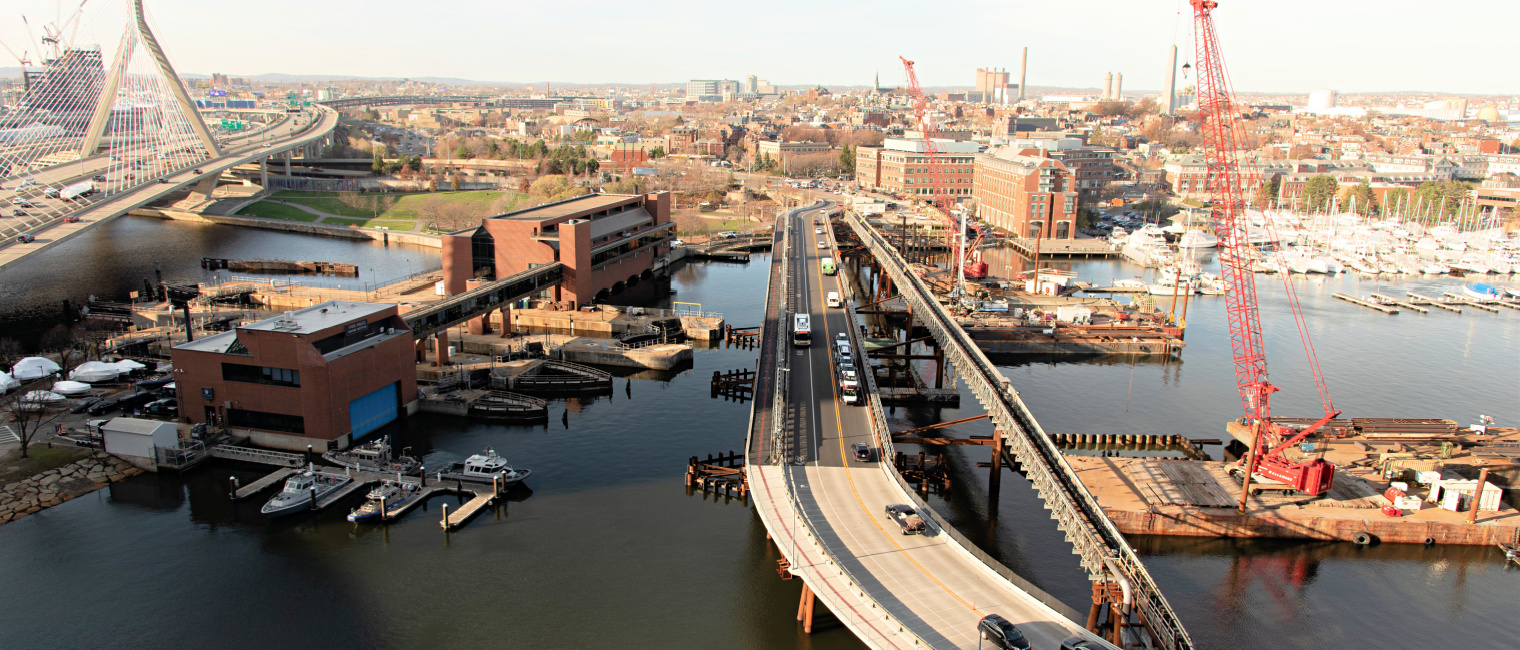
Critical bridge replacement project is quickly and safely progressing with two temporary bridges
The North Washington Street Bridge is critical to Boston’s infrastructure. Owned by the City of Boston, and administered by the Massachusetts Department of Transportation (MASSDOT), the bridge carries over 40,000 vehicles a day and serves as the main bus route between Boston and Charlestown. The original structure had exceeded its useful life, requiring significant annual maintenance and repair, leading to a reduction in traffic lanes in recent years. Originally planned as a phased replacement, the contractor, J.F. White Contracting, proposed a multi-span temporary vehicular bridge to accelerate project delivery and improve worker safety.
Bridge #1 carries the project utilities including natural gas, water, and several electrical and communication lines. This 7-span utility bridge is 797’ (242.93m) long x 6.9’ (2.1m) wide and used for contractor access. Bridge #2 is a 7-span 708’ (215.8m) long vehicular bridge. It accommodates three lanes of traffic, as well as an 8’ (2.44m) wide pedestrian footwalk to keep open Boston’s famed Freedom Trail.
The structure utilizes distribution beams and continuous construction so that the temporary piers could closely match the originals. Special distribution roller beams were designed and supplied to reduce the total jacking height.
A seamless transition of all services to the temporary utility bridge, maintaining power and water for the City of Boston, was achieved. The main challenge involved the additional traffic engineering required to add the temporary bridge in a very congested area. The temporary vehicular bridge allows the contractor to bring in materials for the replacement bridge by barge, without interrupting road traffic. MASSDOT expects the temporary bridge to speed up project completion by six months.
Both bridges were opened in July 2020 and will keep traffic flowing and services running until the main bridge completes in early 2024.
